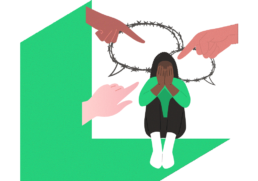
Microaggressions Toolkit
Microaggressions Toolkit
Toolkit collated by Mandy Preville-Findlay
What Are Microaggressions?
The Merriam-Webster online dictionary defines microaggression as:
“A comment or action that subtly and often unconsciously or unintentionally expresses a prejudiced attitude toward a member of a marginalised group (such as a racial minority)”.
The American National Institutes for Health states:
“Microaggressions are everyday verbal, nonverbal, and environmental slights, snubs, or insults – whether intentional or unintentional – that communicate hostile, derogatory, or negative messages to individuals based solely upon their marginalised group membership. Microaggressions repeat or affirm stereotypes about a minority group, and they tend to minimize the existence of discrimination or bias, intentional or not”.
- Microinsults (usually unconscious, and convey rudeness/insensitivity)
- Microassaults (often conscious, and are deliberately and derogatory)
- Microinvalidations (usually unconscious, and exclude the thoughts, feelings, or experiences of a minority group).
References:
US Department of Health and Human Studies – Microaggressions.
Racial Microaggressions in Everyday Life – Types and Impact of Microaggressions.
The Diverse Educators’ Microaggressions Toolkit
- What is meant by the term microaggressions?
- What are my preconceptions about microaggressions and who they affect?
- What are the differences between types of microaggressions?
- Why do we need to be aware of what microaggressions are and who they affect?
- Why is it important for microaggressions to be called out and challenged by everyone, not just those directly affected?
How to Counter Microaggressions
Dealing with Microaggressions can be time consuming and tiring if they are continually encountered. Microaggressions by their very nature may not be intentionally perpetrated. Therefore, allowing them to go unchallenged may lead to unintended negative learning and contribute to many feeling unwelcomed. For example, deciding where a person lives or works based on their appearance.
- Challenge the action or words - let the individual know how you feel or are impacted by their actions or words.
- Record the occurrences - a pattern of behaviour can be established by tracking over a period of time. This becomes important if you need to take things further, later down the line.
- Take it to management - let someone in authority know what is occurring or take it to your Trade Union if you are a member.

